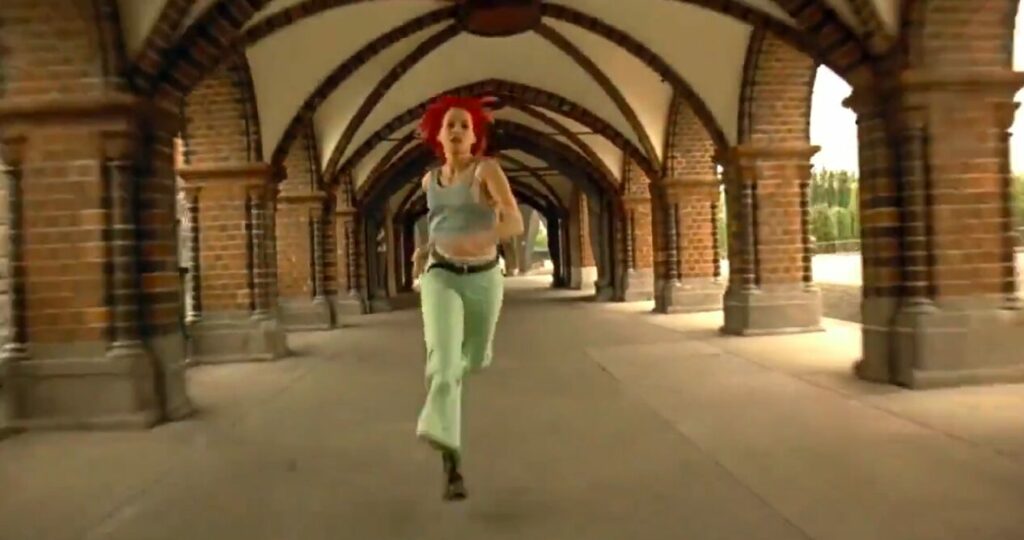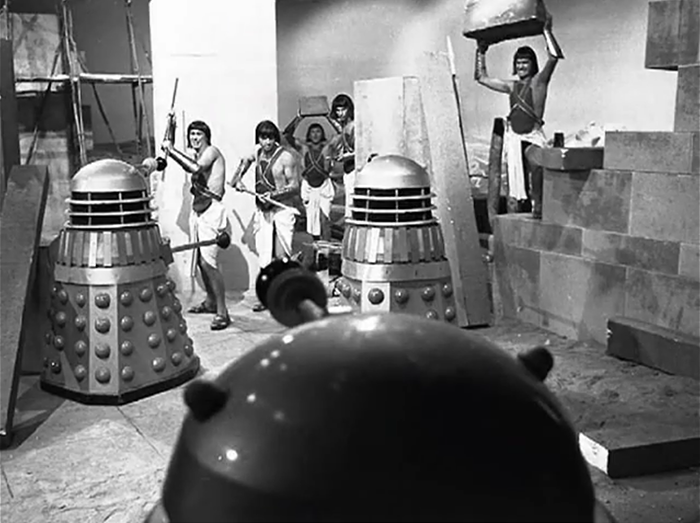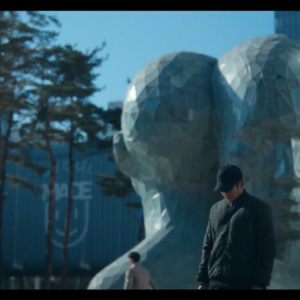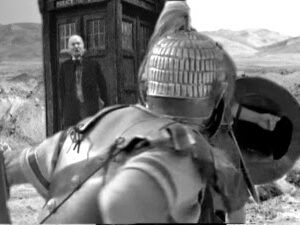The distinction between past, present and future is only a stubbornly persistent illusion
Albert Einstein
It was around 20 years ago that Run Lola Run was released and blew my 21 year old mind.
In the film, Lola has to find the money to bail out her boyfriend while a clock ticks down and time bends in strange ways to the ultimate conclusion. Is it a time travel story? A Sliding Doors story? A parallel universe story?
After the game is before the game
Sepp Herberger
We never know and it’s not important anyway. What’s important is the journey. Or, for a less glib and cliched lesson, what’s important is what we and Lola learn about Lola.

Run Lola Run begins with a monologue best experienced in the original German. Rendered into English, it loses its guttural and definite tone.
Nothing is known, it says. Everything is known.
For Lola, her story isn’t about how it ends. For Lola, her story is about the running.
Man…
Run Lola Run’s opening monologu
probably the most mysterious species on our planet.
A mystery of unanswered questions.
Who are we?
Where do we come from?
Where are we going?
How do we know what we think we know?
Why do we believe anything at all?
Countless questions in search of an answer…
an answer that will give rise to a new question…
and the next answer will give rise to the next question and so on.
But, in the end, isn’t it always the same question?
And always the same answer?
In a way, Run Lola Run‘s philosophy could be reduced to the concept of Ouroboros – the end is the beginning – but whereas Ouroboros is meant to represent the completeness of eternity, Run Lola Run can be seen as saying that the existence of fate does not preclude the struggle of life.
One concept is psychologically comforting, the other is existentially disquieting. Which is to say, it’s very German.

There is something about the German ontology expressed in its limber language that lends itself to the big questions. After all, while us native English speakers switch to French to express our emotions, we switch to German to express our existential dissatisfaction.
Angst. Schadenfreude. Doppelgänger. Wanderlust.
German, for want of a better generalisation, is blunt and concrete. But stackable. German builds upon its own foundation, layering concepts on top of each other until the whole is much more than the sum of its parts. This has led to some perfect portmanteaus such as the aforementioned Schadenfreude but also others such as Zeitgeist.
Yes, the culture is almost universally known for its lack of irony, but its earnestness comes in handy sometimes. And stories about the nature of reality are some of those times.
Run Lola Run is an accessible masterpiece in questioning reality; asking the big questions yet never quite answering them. The ball is round, the game lasts 90 minutes. But those things are arbitrary and cultural. They are because we say they are. They reflect reality no better than a film.
Which is, of course, the point.
And while Lola’s run seems to have ended at the end of the third act there’s no reason for us to assume so. After all, the end of the game is the beginning of the game. Lola is simply preparing for her next run. I simply can’t imagine a concept like this – a complete circle of reality that is nonetheless so much damn hard work – being brought into existence by any but a Germanic language.
You may be wondering at this stage what all of this has to do with Dark; season 2 of which has dropped on Netflix this weekend. You also may think it’s strange for me to be talking about confusing, complex and surreal works of art such as Dark by discussing how concrete a language German is.
However, when I say that I think both these works of art could not be produced by any country but Germany I am speaking of both the language and the sensibility.
Dark builds on the same philosophical concepts as Run Lola Run although in a longer-form of storytelling and one that is, arguably, far less accessible. But, just as Lola lived out her endless loop running, so Dark plays out a story of fate and inevitability with just as much running, even if that hard work is not as literal.
All that is, is. The world, reality, the space we inhabit exists and is concrete and foundational.
But stackable.
Until the end result is something much greater than the sum of its parts.
Everything that has happened, will happen and has already happened. Everything is now. Everything is a cycle. And yet nothing is what it seems to be. Put enough concrete together and you get a building. Put enough concepts together and you get a philosophy. Put enough past together and you get a future. And that future is as inevitable and inarguable as that building.

Dark‘s first season began, as did Run Lola Run with a guttural monologue on the nature of time and reality.
We trust that time is linear
Dark
That it proceeds eternally, uniformly
Into infinity
But the distinction between past, present and future
is nothing but an illusion
Yesterday, today and tomorrow are not consecutive
They are connected in a never-ending circle
Everything is connected
Dark also draws on Germany’s fairy tale history of dark woods, lost children and the ominous sense of something lurking beyond the edges of civilisation. It’s as if the Grimm brothers met Einstein arguing with Nietzsche and decided to write a modern-day fairytale on eternal recurrence.
But the monster, the witch, lurking just out of sight beyond the menacing tree line? That monster is the physical constraints of our existence. The beast in the dark pit is the physics of the universe; the one thing that humanity cannot overcome.

It is the circular, self-referential and absolute nature of the reality depicted that leads us to the inevitable conclusion that nothing we do can change anything. Even if time travel were possible, the world would still be as it is simply because it is. The wormhole would be integrated into our lives in the same way as our parents or our children and would therefore be as palpable and as solid as forests or family or nuclear waste. And Marty McFly learned that lesson the hard way.
We can fight anything but reality. We cannot fight physics.
In fact, as Dark finally (FINALLY) moves into season 2, I’m reminded of Nietzsche’s concept of amor fati:
That one wants nothing to be different, not forward, not backwards, not in all eternity
Nietzsche
Even if the past could be changed, it already has and that’s the world you’re living in. You can’t change it. You must just accept it.




Very well written! I was originally watching this with the idea they need to change the past to fix the present and future but all it has shown to me is that everything has already happened and all that is happening, including them trying to “fix” things, is because everything has already happened. Them trying to fixing things is already part of the past and has already happened, so it’s this endless loop. This show makes my head spin @_@
Hopefully it makes your head spin in a good way though!